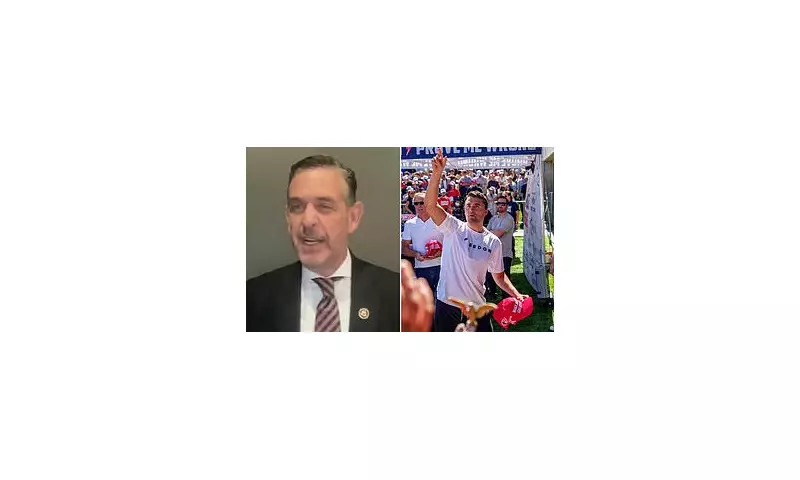
In a remarkable display of cross-aisle unity, American political firebrand Charlie Kirk has been barred from entering Britain after both Republican and Democratic officials allegedly collaborated to block his visa application.
The founder of the conservative youth group Turning Point USA was scheduled to embark on a speaking tour across the UK when he received the devastating news that his entry had been denied. What makes this case extraordinary isn't just the rejection itself, but the purported collaboration between traditionally opposing American political factions to make it happen.
The Bipartisan Blockade
According to Kirk's explosive claims, representatives from both major US political parties actively worked behind the scenes to prevent his UK appearance. This unusual alliance suggests that despite their public differences, certain figures across the political spectrum found common ground in keeping the controversial speaker off British soil.
Kirk didn't mince words when describing the situation, framing it as a coordinated effort to silence his message and limit his influence abroad. The incident raises pressing questions about foreign influence on British immigration decisions and where the line should be drawn between security concerns and free speech protection.
Speaking Tour Derailed
The cancelled tour represents a significant setback for Kirk's international expansion efforts. His brand of conservative activism, which has gained substantial traction among American youth, was poised to test its appeal with British audiences.
Venues across the UK had been booked, tickets sold, and promotional materials distributed before the visa denial forced organizers to cancel all events. The move has left supporters disappointed and critics relieved, highlighting the deep divisions Kirk's presence inspires.
Free Speech Implications
This development sparks serious debate about the boundaries of free speech and the right of sovereign nations to control who enters their territory. While the UK maintains absolute authority over its borders, the involvement of foreign politicians in the process concerns free speech advocates.
The case sets a notable precedent for how Western democracies handle controversial international speakers and whether political disagreements should constitute grounds for exclusion. As cultural battles increasingly cross international boundaries, this incident may signal a new approach to managing ideological exports.
Home Office officials typically refrain from commenting on individual visa cases, maintaining that all applications are judged on their merits according to UK immigration rules. The department states that entry may be refused if an individual's presence is not deemed conducive to the public good.
As the story develops, it continues to generate heated discussion on both sides of the Atlantic about political censorship, foreign influence, and the evolving nature of free speech in an increasingly interconnected world.






